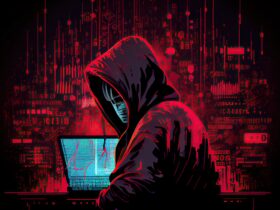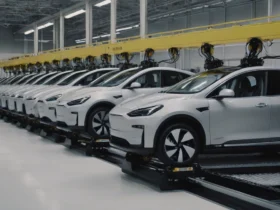Discover the unseen tactics and tools that shape the journey to the Oval Office. Join us as we dissect the latest New Hampshire Primary, unveiling a new era of political warfare.

The recent New Hampshire primary, a pivotal moment in the journey towards the White House, has once again brought to light the multifaceted nature of political campaigns. As former President Donald Trump clinched a decisive victory over Nikki Haley, we are reminded of the intricate blend of strategy, technology, and human ambition that forms the backbone of successful political campaigns. With 70% of the votes tallied, Trump’s lead of 54% to Haley’s 43% was not just a demonstration of political tenacity, but also a testament to the evolving art of campaign management in the digital era.
Decoding the New Hampshire Showdown: A Political Analysis
The New Hampshire primary, known for its independent streak, was a battleground where both traditional campaigning and modern technological prowess were on full display. Trump’s triumph in this crucial contest and Haley’s resolve to continue the fight highlight a larger narrative – one that encompasses not just the charisma of the candidates, but also the silent, yet powerful, role of digital tools and strategies in shaping political outcomes.

The setback for Haley, despite her significant investment in time and resources, sheds light on the importance of data-driven strategies in today’s political sphere. The outcome in New Hampshire was not merely the result of charismatic leadership or traditional campaign methods; it was also shaped by the unseen hand of advanced data analytics and targeted communication strategies.
The Invisible Arsenal: Technology in Modern Campaigns
In this digital age, the role of technology in political campaigns cannot be overstated. From data management systems to social media analytics, the modern political campaign is a labyrinth of digital tools and platforms. Here, solutions like PaperOffice, a leading AI-based Document Management System, come into play, offering an innovative way to manage the vast troves of data that campaigns generate. While not directly related to the New Hampshire primary, the use of such advanced systems highlights a shift towards more efficient and data-driven campaign strategies.
The ability to process and analyze large datasets allows campaigns to pinpoint voter preferences, tailor messages, and efficiently allocate resources. This AI-driven approach to campaign management could redefine how political strategies are formulated and executed.
The Art of Digital Persuasion
In a race like the New Hampshire primary, where the margin of victory can be razor-thin, the power of digital persuasion becomes paramount. Campaigns that can effectively harness social media platforms to spread their message, engage with voters, and counter opposition narratives have a distinct advantage. This digital battleground, where tweets can have the impact of traditional political rallies, is where modern campaigns are increasingly being won or lost.
Towards a More Predictive Political Landscape
The integration of AI and data analytics into political campaigns is leading us towards a more predictive political landscape. By leveraging big data, campaigns can not only understand voter behavior but also anticipate it, allowing for more strategic decision-making. The New Hampshire primary serves as a perfect example of this. The ability to forecast voter turnout, gauge public sentiment, and adapt strategies in real time can make the difference between victory and defeat.
This shift towards a more data-driven approach does not diminish the human element of political campaigns; rather, it enhances it. By freeing up valuable resources from mundane tasks, campaign staff can focus on the creative and strategic aspects of campaigning, from crafting compelling narratives to forging meaningful connections with voters.
Unifying Tech and Tradition
The juxtaposition of traditional campaign tactics with cutting-edge technology in the New Hampshire primary underscores a broader trend in political campaigns. The future of political campaigning lies in the seamless integration of these two realms. As Trump and Haley navigated the complexities of the primary, their campaigns were likely supported by a hybrid approach that blended traditional grassroots efforts with sophisticated digital strategies.
The Evolving Role of Campaign Management
As we witness the unfolding of the 2024 Presidential Election, the evolving role of campaign management becomes increasingly evident. The New Hampshire primary is just the beginning of a long and arduous journey to the White House, a journey that will be navigated not just through rallies and debates, but also through bytes and algorithms.
The convergence of technology and politics is redefining the rules of the game. Campaigns that can effectively leverage this convergence will find themselves at a significant advantage. The use of AI-driven tools for data management, voter engagement, and strategic planning is no longer a futuristic concept; it is the current reality of political campaigning.
The Future of Political Campaigns
As we look to the future, the New Hampshire primary serves as a harbinger of what is to come. The fusion of technology and traditional campaigning methods will continue to shape the political landscape, making campaigns more efficient, more strategic, and more in tune with the digital age.

Embracing Change: The New Political Norm
The dynamics of the New Hampshire primary, where traditional political rhetoric intertwined with modern technological tools, represent a microcosm of the changing face of political campaigns globally. As we move deeper into the digital age, the ability to adapt and embrace these changes becomes not just an advantage, but a necessity for political success. Campaigns must now be as fluent in the language of algorithms and analytics as they are in the art of public speaking and policy-making.
Understanding Voter Sentiments in Real-Time
One of the most significant advantages of integrating technology into political campaigns is the ability to understand and react to voter sentiments in real-time. In the fast-paced world of politics, where public opinion can shift overnight, having a finger on the pulse of the electorate is invaluable. Tools that enable real-time sentiment analysis, like social media monitoring and online polling, can give campaigns an edge by allowing them to quickly adjust their strategies and messaging.
Automation: The New Campaign Workhorse
Automation is playing an increasingly critical role in campaign management. From automated email campaigns to AI-driven content creation, these tools are reshaping how campaigns communicate with voters. Automation not only enhances efficiency but also ensures consistency and accuracy in messaging – vital elements in a political campaign where every word counts.

The Human Touch in the Age of Digital Campaigning
Despite the growing reliance on technology, the human element remains at the heart of political campaigns. Technology is a tool, not a replacement, for human insight and creativity. The most successful campaigns will be those that effectively blend the efficiency and precision of technology with the empathy and intuition of human interaction.
Engaging the Digital Native Voter
The digital native voter, a demographic that is growing in size and influence, poses both a challenge and an opportunity for political campaigns. Engaging this tech-savvy electorate requires not only an understanding of digital platforms but also an authentic and relatable online presence. Campaigns must navigate the delicate balance between online engagement and real-world connection.
Conclusion: Navigating the New Political Landscape
The journey through the 2024 Presidential Election, of which the New Hampshire primary is only the beginning, will undoubtedly be marked by further integration of technology into campaign strategies. The evolution of political campaigning is an ongoing process, one that requires continuous adaptation and innovation.
In this new era of politics, where data-driven strategies and digital tools are becoming the norm, the path to victory is increasingly complex. Campaigns that can navigate this complexity, leveraging the power of technology while maintaining a strong human connection, will be the ones that find success in the digital age.
The New Hampshire primary, with its mix of traditional campaigning and modern technological tactics, offers a glimpse into the future of political campaigns – a future that is digital, data-driven, and more dynamic than ever before.
Embracing the Digital Revolution in Politics
As we look ahead, it’s clear that the digital revolution in politics is just beginning. The New Hampshire primary is a signpost on this journey, indicating the direction in which political campaigns are headed. In this ever-evolving landscape, the ability to harness the power of technology will be a key determinant of political success.
To stay ahead in this new political era, campaigns must be innovative, adaptive, and willing to embrace the digital revolution. The future of political campaigns is here, and it is a fusion of tradition and technology, of human insight and digital efficiency.
The path to the White House is being rewritten, and at the forefront of this transformation are the campaigns that understand the power of technology and use it to their advantage. The New Hampshire primary is just the beginning of a new chapter in political history – a chapter that promises to be as exciting as it is unpredictable.







Leave a Review